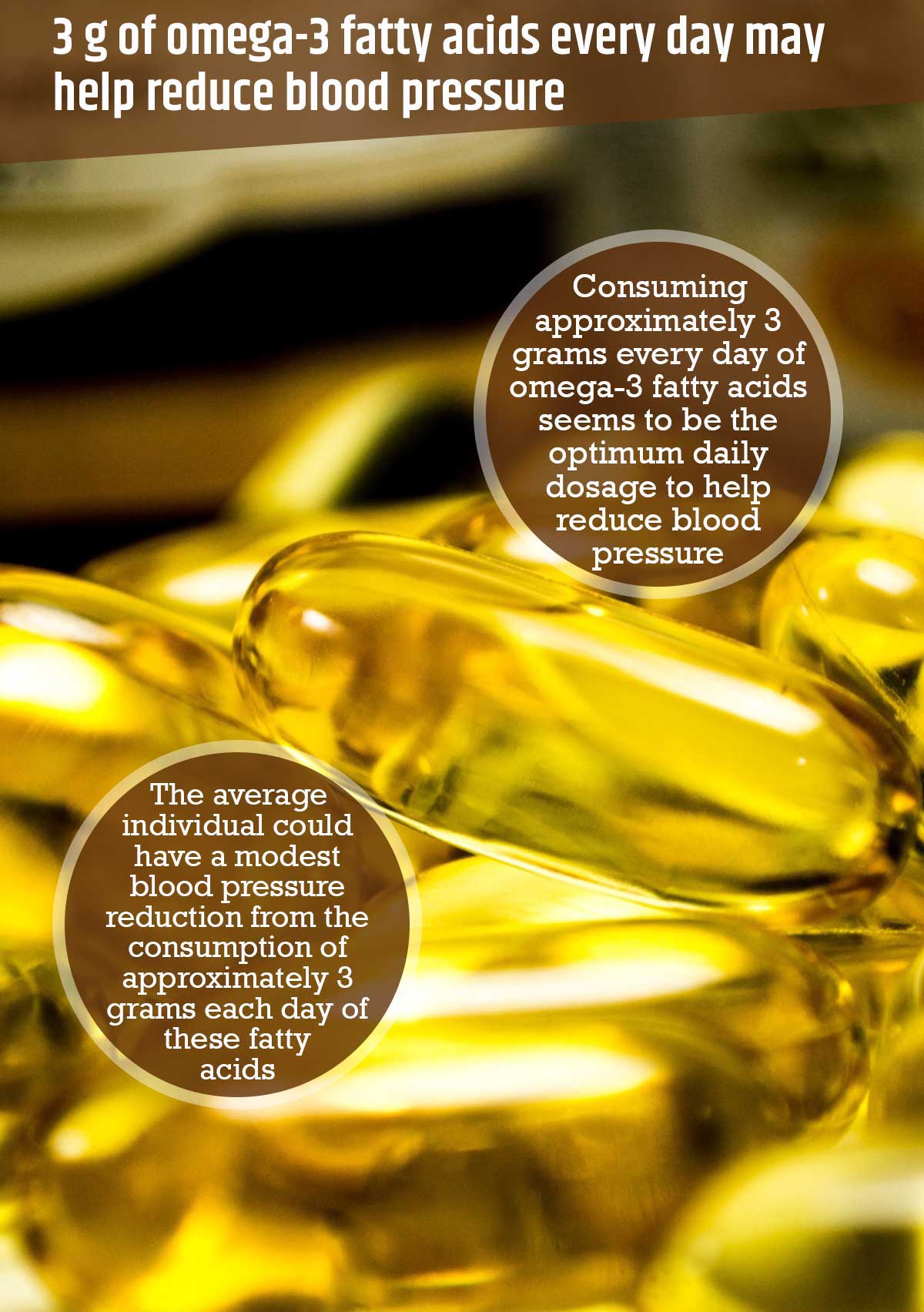According to a review of studies, consuming approximately 3 grams every day of omega-3 fatty acids in supplements or foods seems to be the optimum daily dosage to help reduce blood pressure.1✅ JOURNAL REFERENCE
DOI: 10.1161/JAHA.121.025071
Omega-3 fatty acids EPA and DHA are commonly found in fatty fish, which include trout, sardines, tuna, salmon, oysters, and herring. Many individuals also take a combination of EPA and DHA in supplements.
Although some research indicates that consuming omega-3 fatty acids could help with blood pressure reduction, the optimum dosage required to reduce blood pressure hasn’t been clear. The NIH has confirmed a sufficient daily omega-3 fatty acid intake for healthy people to be 1.1 to 1.6 grams, determined by sex and age.
According to this study, the average individual could have a modest blood pressure reduction from the consumption of approximately 3 grams each day of these fatty acids.
The results of 71 worldwide clinical trials published between 1987 and 2020 were analyzed. The studies looked at the connection between the omega-3 fatty acids EPA and DHA and blood pressure in individuals 18 years and older with hypertension or without or with cholesterol disorders.
There were almost 5,000 individuals combined, varying between the ages of 22 and 86 years. They consumed supplements and/or dietary sources of fatty acids for 10 weeks on average.
The analysis revealed:
- In comparison to individuals who didn’t consume DHA and EPA, individuals consuming between 2 and 3 grams of combined EPA and DHA omega-3 fatty acids daily (in food, supplements, or both) had a reduction in systolic blood pressure and diastolic blood pressure by 2 mm Hg on average.
- Consuming over 3 grams of omega-3 fatty acids every day could have added blood pressure-reducing benefits for individuals with hypertension or high blood lipids.
- A daily dose of 3g of omega-3s resulted in a systolic blood pressure reduction of 4.5 mm Hg on average for people with high blood pressure, and approximately 2 mm Hg on average for individuals without high blood pressure.
- A daily dose of 5g of omega-3s resulted in a systolic blood pressure reduction of almost 4 mm Hg on average for individuals with high blood pressure and less than 1 mm Hg on average for individuals without high blood pressure.
- Similar differences were found in individuals with high blood lipids and individuals older than 45 years.
Approximately 3 grams of omega 3 fatty acids are provided by 4 to 5 ounces of Atlantic salmon. There is approximately 300 mg of omega-3s in a fish oil supplement, although doses can vary a lot.
The majority of the studies reported on fish oil supplements instead of on DHA and EPA omega-3s derived from food, which indicates that supplements could be an alternative for individuals who can’t consume fatty fish like salmon regularly. Algae supplements containing DHA and EPA fatty acids are also an option for individuals who don’t consume fish.
The FDA doesn’t object to the use of certain health claims that the consumption of DHA and EPA omega-3 fatty acids in dietary supplements or food could help in reducing the risk of high blood pressure and coronary heart disease. They however said that the evidence was inconsistent and inconclusive.



